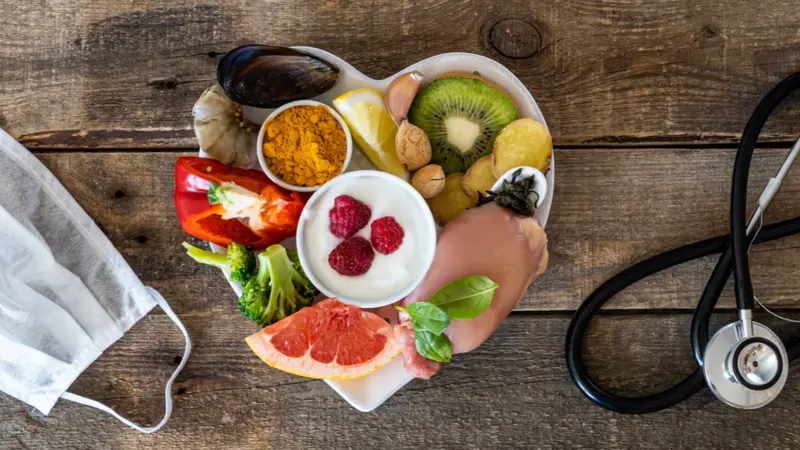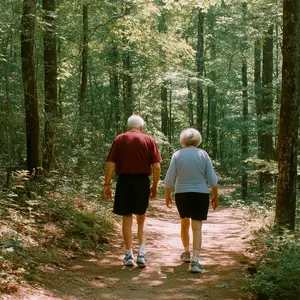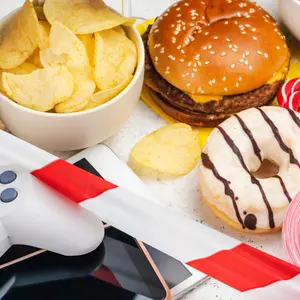

WELLthier Living and Aging

WELLthier Living and Aging
Lifestyle Tips to Boost Your Immune System during Pandemic
The rapid spread of the novel coronovirus (2019-nCoV), a respiratory illness, has gripped the world’s attention. Coronaviruses are a large family of viruses common in some species of animals, including camels, cattle, cats, and bats. Most of what scientists know about the origin and spread of 2019-nCoV is based on what is known about the MERS and SARS coronaviruses, both of which spread from bats.
It’s believed 2019-nCoV originated in animal-to-human transfer at a large and crowded seafood and live animal market in Wuhan City, Hubei Province, China. The US Centers for Disease Control (CDC) confirms that sustained person-to-person spread is occurring in China, where—as of this writing—about 20,500 people have been infected. Cases have been reported in at least 27 countries around the world, including the US. Both the World Health Organization (WHO) and CDC have declared a public health emergency in respect of the virus.
CDC and WHO scientists are working overtime to identify characteristics of this strain of the virus and learn more about its person-to-person transmission. Investigations are ongoing and it’s currently unclear if 2019-nCoV is transmissible by a person touching a surface or object that has the virus on it then touching their own mouth, nose, or possibly eyes. There have been reports of spread from asymptomatic patient to a close contact.
As of now, while the CDC says the virus poses a serious public health threat, it considers the immediate risk to the American public as low and recommends everyday preventive actions to help prevent the spread of any respiratory virus. These are:
- wash hands with soap and water for at least 20 seconds, especially after going to the bathroom, before eating, and after blowing your nose, coughing, or sneezing
- use alcohol-based hand sanitizer with at least 60% alcohol if soap and water are not available
- avoid close contact with people who are sick
- avoid touching eyes, nose, and mouth with unwashed hands
- stay home if sick
- cover coughs or sneezes with a tissue and safely discard the tissue after use
- clean and disinfect frequently touched objects and surfaces
The US has taken unprecedented steps related to travel, including, effective February 2nd, suspending entry to the US of foreign nationals who have visited China within the last 14 days. US citizens who have visited China are subject to health monitoring and possible quarantine for this period.
Towns across the US are reporting shortages of surgical face masks as a worried public stocks up, but their efficacy is unclear and currently there are no recommendations from the CDC to wear masks outside of healthcare settings.
Lifestyle Modifications Can Help Boost Your Immune System to Fight Off Infection
Meanwhile, maintaining a strong immune system is vital to keeping infection at bay. Our immune system is continually responding to internal and external stimuli. The body is always looking for ways to maintain homeostasis—balance and harmony—whether from the foods we eat, our exercise habits, relationships, sleep, stress, and even the air we breathe and the water we drink. Research shows that nearly 70% of our immune system is located in the digestive tract. The beneficial bacteria and microorganisms that live there defend the gut from infection and support the immune system.
Eat Immune-Boosting Antioxidants and Foods
According to the Institute for Functional Medicine (IFM): “Natural antioxidants prevent cell damage against free radicals and are critical for maintaining optimum health. Antioxidant nutrients such as vitamin E, vitamin C, beta-carotene, selenium, copper, iron, and zinc improve our different immune functions and play a protective role in the event of an infection.” Eat immune-boosting antioxidants and foods:
- Rainbow-colored phytonutrient-dense vegetables and fruits, whole and unprocessed foods (organic if possible to limit chemicals and toxins)
- Prebiotic (dietary fiber)- and probiotic (good bacteria)-rich foods to enhance microbial diversity in the gut
- Vitamin C-rich foods to clean up free radicals
Foods that promote infection should be avoided. Excessive sugar consumption depletes our body’s nutrient balance, which triggers a waterfall of metabolic disruption and inflammation. Avoid:
- Sugar-heavy foods
- Soda and other sugary drinks
- Refined carbohydrates
- Processed foods
Get Adequate Sleep
Sleep and the circadian system exert a strong regulatory influence on immune functions. Without sufficient sleep, our bodies make fewer cytokines, a type of protein that targets infection and inflammation. The optimal amount of good sleep per night for most:
- Adults: 7–8 hours
- Teenagers: 9–10 hours
- Babies and young children: 12 hours
Engage Regularly in Moderate-Intensity Exercise
Evidence suggests that exercise has a profoundly positive effect on the functioning of our immune system. As little as 20 minutes of exercise can stimulate our immune system, producing an anti-inflammatory cellular response and suppressing the cytokines that lead to many diseases.
Reduce Stress Levels
Stress decreases the body’s white blood cells that help fight off infection. The lower your white blood cells, the more at risk you are for viruses, including the common cold. Simple no-cost tips to help reduce stress include:
Meditate
- Practice deep breathing
- Maintain positive connections with other people
- Spend more time in nature
Have Meaning and Purpose in Your Life
In times like this it is particularly important to take the time to be mindful and have meaning and purpose in our lives. The joy we find in having a purpose-based or meaning-based outlook has been shown in studies to directly benefit our immune system.
REFERENCES
Sources & Further Reading:
Centers for Disease Control and Prevention. (2020, February 4). How 2019-nCoV spreads. https://www.cdc.gov/coronavirus/2019-ncov/about/transmission.html
Centers for Disease Control and Prevention. (2020, February 4). 2019 Novel coronavirus (2019-nCoV) situation summary. https://www.cdc.gov/coronavirus/2019-nCoV/summary.html
Wernau, J., & Yifan Xie, S. (2020, January 30). Coronavirus fears drive demand for face masks, but some experts doubt them. The Wall Street Journal.
The Institute for Functional Medicine. (2020, February 4). Improve immune function with diet & lifestyle changes. https://www.ifm.org/news-insights/lifestyle-improve-immune-function-diet-lifestyle-changes/
Minich, D. M. (2019, June 2). A review of the science of colorful, plant-based food and practical strategies for “eating the rainbow.” Journal of Nutrition and Metabolism, https://doi.org/10.1155/2019/2125070
Hosseini, B., Berthon, B. S., Saedisomeolia, A., Starkey, M. R., Collison, A., Wark, P.A.B., & Wood, L. G. (2018). Effects of fruit and vegetable consumption on inflammatory biomarkers and immune cell populations: A systematic literature review and meta-analysis. American Journal of Clinical Nutrition, 108(1), 136–155.
Do, M. H., Lee, E., Oh, M-J., Kim,Y., & Park, H-Y. (2018, June 10). High-glucose or -fructose diet cause changes of the gut microbiota and metabolic disorders in mice without body weight change. Nutrients, 10(6), 761.
Wu, H-J., & Wu, E. (2012, January 1). The role of gut microbiota in immune homeostasis and autoimmunity. Gut Microbes, 3(1), 4–14.
American Psychological Association. (2006, February 23). Stress weakens the immune system: Friends, relaxation strengthen health. https://www.apa.org/research/action/immune
Besedovsky, L., Lange, T., & Born, J. (2012, January). Sleep and immune function. Pflügers Archive: European Journal of Physiology, 463(1), 121–137. https://doi.org/10.1007/s00424-011-104400
Olson, E. J. (2018, November 28). Lack of sleep: Can it make you sick? Mayo Clinic. https://www.mayoclinic.org/diseases-conditions/insomnia/expert-answers/lack-of-sleep/faq-20057757
Brubaker, M. (2017, January 12). Exercise . . . it does a body good: 20 minutes can act as anti-inflammatory. UC San Diego News Center. https://ucsdnews.ucsd.edu/index.php/pressrelease/exercise_it_does_a_body_good_20_minutes_can_act_as…
Marchant, M. (2013, November 27). How happiness boosts the immune system. Nature, 503(7477), 458–460.
Kuo, M. (2015, August 15). How might contact with nature promote human health? Promising mechanisms and a possible central pathway. Frontiers in Psychology, 6, 1093. https://doi.org/10.3389/fpsyg.2015.01093
Li, Q., Kobayashi M., Wakayama Y., Inagaki H., Katsumata M., Hirata Y., Hirata K., Shimizu T., Kawada T., Park B. J., Ohira T., Kagawa T., & Miyazaki Y. (2009, October–December). Effect of phytoncide from trees on human natural killer cell function. International Journal of Immunopathology and Pharmacology, 22(4), 951–959. https://doi.org/10.1177/039463200990220410.


 By
By






